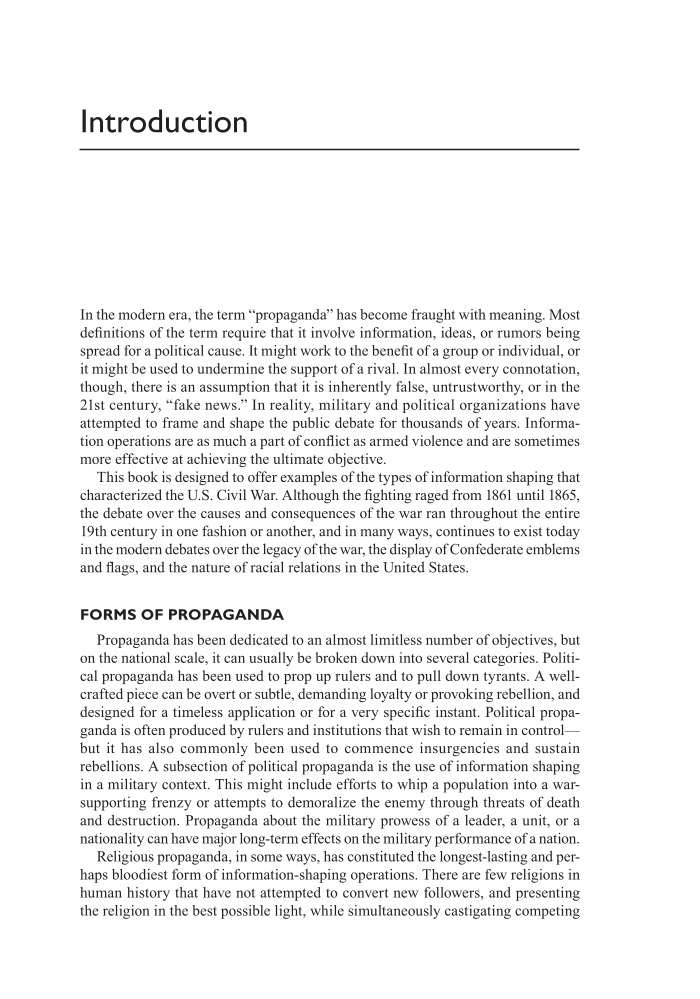Introduction In the modern era, the term “propaganda” has become fraught with meaning. Most definitions of the term require that it involve information, ideas, or rumors being spread for a po liti cal cause. It might work to the benefit of a group or individual, or it might be used to undermine the support of a rival. In almost every connotation, though, there is an assumption that it is inherently false, untrustworthy, or in the 21st century, “fake news.” In real ity, military and po liti cal organ izations have attempted to frame and shape the public debate for thousands of years. Informa- tion operations are as much a part of conflict as armed vio lence and are sometimes more effective at achieving the ultimate objective. This book is designed to offer examples of the types of information shaping that characterized the U.S. Civil War. Although the fighting raged from 1861 until 1865, the debate over the causes and consequences of the war ran throughout the entire 19th century in one fashion or another, and in many ways, continues to exist today in the modern debates over the legacy of the war, the display of Confederate emblems and flags, and the nature of racial relations in the United States. FORMS OF PROPAGANDA Propaganda has been dedicated to an almost limitless number of objectives, but on the national scale, it can usually be broken down into several categories. Po liti cal propaganda has been used to prop up rulers and to pull down tyrants. A well- crafted piece can be overt or subtle, demanding loyalty or provoking rebellion, and designed for a timeless application or for a very specific instant. Po liti cal propa- ganda is often produced by rulers and institutions that wish to remain in control— but it has also commonly been used to commence insurgencies and sustain rebellions. A subsection of political propaganda is the use of information shaping in a military context. This might include efforts to whip a population into a war- supporting frenzy or attempts to demoralize the enemy through threats of death and destruction. Propaganda about the military prowess of a leader, a unit, or a nationality can have major long-term effects on the military performance of a nation. Religious propaganda, in some ways, has constituted the longest- lasting and per- haps bloodiest form of information-shaping operations. There are few religions in human history that have not attempted to convert new followers, and presenting the religion in the best possible light, while simultaneously castigating competing
Document Details My Account Print multiple pages
Print
You have printed 0 times in the last 24 hours.
Your print count will reset on at .
You may print 0 more time(s) before then.
You may print a maximum of 0 pages at a time.









































































































































































































































































































































































